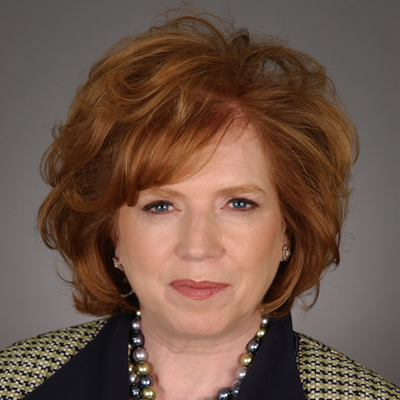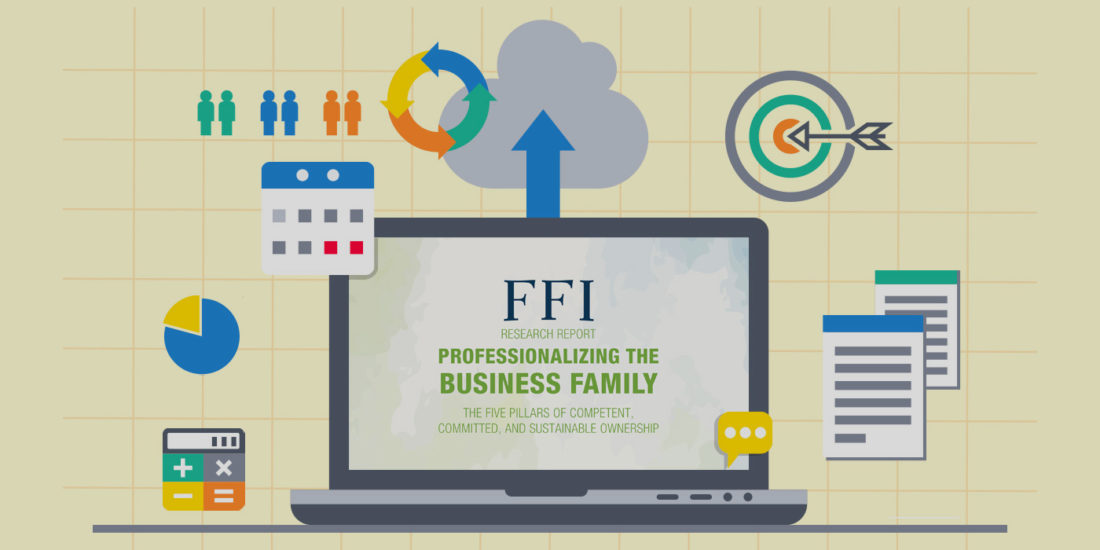
View this edition in our enhanced digital edition format with supporting visual insight and information.
This week, we are pleased to feature a curated edition by Patricia Annino, FFI Fellow and founding member of the 2086 Society. This article cites research from the Family Business Review that addresses the dynamic roles of wives and mothers in the family enterprise and highlights the ongoing importance of applied research within the field.
The evolving role of women in family enterprises is one I have been observing and writing about for a very long time.
The power of women in visible leadership roles is now clear. Women know they have power, know how to compete, and openly admit to ambition. Yet wives and mothers continue to hold invisible non-leadership roles in some family business systems, and their influence calls for increased research.
In a 1971 Harvard Business Review case study, “Conflicts that Plague Family Businesses,”1 the patriarch lamented that a problem faced by fathers and brothers occurred when wives or sisters got involved. “When business is off, women complain. If the president wants to buy more equipment, the woman resists. If the wives hear complaints from employees or merchant friends, they make these complaints known at family gatherings.” Thus, the case study concludes, “the president is never free from the vixens who are constantly criticizing and second-guessing them.”
As much as the research in the field of women’s leadership in the family business has evolved and shifted, the attitudes and stereotypes concerning the invisible roles of women as wives and as mothers may invite further study.
Below, please find several articles from Family Business Review that provide valuable research and insight on this topic and show that the learning process must continue to evolve.
“Over My Dead Body”: Wives’ Influence in Family Business Succession
By: Barbara Cosson and Michael Gilding (December 2021 issue)
This article originated from a research project in partnership with a major Australian accounting firm specializing in family businesses. During the project, a partner in the accounting firm recalled a grueling succession planning process with a family business founder and his potential successors. No one consulted the founder’s wife until a deal was imminent, where upon she blew the deal up and proclaimed, “It will not happen over my dead body,” highlighting both the dynamics of the wives’ invisibility in the family business (no one consulted her) and their potential influence (she blew the deal apart). This example is strikingly similar to the 1971 “vixen” perspective.
The authors took the mostly overlooked influence of wives to heart and embarked on a research project consisting of 34 in-depth interviews to focus on the influence of wives and came to three conclusions:
- Wives have critical influence through socialization across the lifespan of the business, specifically through normative, interactive, and experiential socialization.
- Wives profoundly influence their children’s vocational choices through advice, encouragement, and role modeling, thus impacting family business continuity.
- Wives have an amplified influence on family business succession because of the changing expectations and interpersonal dynamics of marriage and family life.
Wives can influence succession through giving advice and encouragement as well as role modeling at home and at work. This article develops four categories of ideal types: Pioneer, Doubters, Traditionalists, and Disruptors. Research articles like this one can help advisors shine a light on the invisible power of wives in the family businesses, which could make that role more visible and constructive.
Celebrity Couples as Business Families: A Social Network Perspective
By: Yasaman Gorji, Michael Carney, Rajshree Prakash (December 2021 issue)
This article focuses on the power of the couple and underscores that for enterprising families, marriage is a strong social tie that represents the unification of two previously independent social networks with potentially reciprocal benefits. Although the emphasis of this article is on celebrity couples, the theories presented also apply to couples in family enterprises. It serves to remind advisors of the adage “One plus one equals three,” and invites the advisor to think about the potential attached to that concept.
The Role of Wives in Family Businesses: The Paid and Unpaid Work of Women
By: Barbara R. Rowe and Gong-Soog Hong (March 2000 issue)
The authors emphasize the many paid and unpaid contributions women make to family enterprises and underscore that the contribution of wives to a family business can take several forms, including managing the household, working in the business, being employed by others, and simultaneously holding two jobs—one in the family business and one in outside employment. The magnitude of wives’ contributions to family enterprises is far beyond what they may first appear, and this article reminds advisors of that factor in a thoughtful, well documented manner.
Sex and Gender in Family Business Succession Research: A Review and Forward Agenda from a Social Construction Perspective
By: Teresa Nelson and Christina Constantinidis (September 2017 issue)
This article highlights hidden gender biases that advisors implicitly have when dealing with clients and provokes thought as to what the roles (visible and invisible) of men and women are in the family enterprise and how being mindful of that bias promotes better planning.
Reference
1 Levinson, H. (March 1971). Conflicts That Plague Family Businesses. Harvard Business Review, 49(2), pp. 90-98. Retrieved October 20, 2023, from https://hbr.org/1971/03/conflicts-that-plague-family-businesses.
About the Contributor

Patricia M. Annino, FFI Fellow, is an attorney with Rimôn, P.C., in Boston. The 2022 recipient of the Richard Beckhard Practice Award, Patricia is a former member of the FFI Board of Directors, a founding member of the 2086 Society, and a frequent contributor to FFI Practitioner. She has been voted by her peers as one of the Best Lawyers in America, Estate Planner of the Year, and EuroMoney’s “Best in Wealth Management — USA.” Her most recent book is Power, Strength & Perseverance: What Women Know About Other Women, but Search for in Themselves. She can be reached at patricia.annino@rimonlaw.com.

View this edition in our enhanced digital edition format with supporting visual insight and information.





